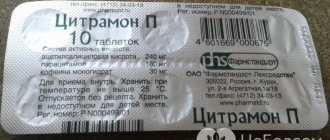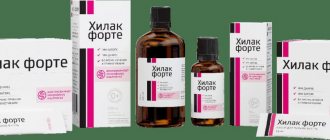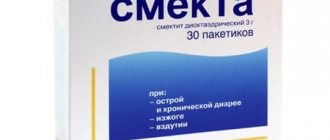Modern medicine offers remedies to treat almost all diseases and strengthen the body as a whole. But many have heard that medicines cure one thing and cripple another. Sometimes this expression, which has long become popular, is applied to human life.
Violation of the rules for taking medications or increased sensitivity of the body to chemical compounds can provoke intoxication at best, and death at worst. So, what common medications should you be wary of? An overdose of which pills leads to death?
Causes of drug overdose
Serious diseases that can cause death are treated mainly with potent compounds, which are themselves dangerous. Therefore, it is necessary to follow the instructions and see a doctor. Let's not forget that some medications do not combine with each other, and most drugs are incompatible with alcohol. Due to inappropriate combinations of drugs, cases of fatal conditions are not uncommon. The liver is not able to neutralize toxic compounds formed by incompatible components. As a result, the patient's condition deteriorates sharply, coma develops, and then death occurs.
The causes of death include not only accidental exposure to a toxic factor. Some people use pills to try to commit suicide. Fortunately, few people know which pills to take to cause death, and most dangerous drugs are sold only with a doctor's prescription.
However, conventional medications can also cause harm to your health if you take a lot of them. Lethal doses exist for every drug. How many tablets are needed to provoke death depends on age, body weight, individual characteristics of the body and concomitant diseases. According to statistics, most attempts by suicides to commit suicide using pills result in severe forms of poisoning.
Using pills at home to lose weight or improve sleep can also lead to dire consequences if the dosage is not followed. Children are poisoned with pills because of their own curiosity and the negligence of adults. Drug poisoning in emergency cases occurs when primary care is provided by incompetent people. If the victim is in pain, an ignorant person may give too much of the drug, which in this case will lead to respiratory arrest and death.
Rules for taking medications
Follow the dosages and rules for taking pills and medications.
In most cases, preventing an overdose is simple: just follow certain rules when taking medications.
Some useful tips:
- The most important point is that writing a prescription is the job of a doctor. Self-medication or replacing one drug with another is prohibited. You also cannot rely on the knowledge of a pharmacist; sometimes a mistake by an inexperienced specialist can cost you your life.
- Be sure to listen to your doctor's recommendations. Buy special medications for children; it is strictly forbidden to give your child an adult tablet divided into several parts. There are a huge number of children's medicines on sale, they are easy to use and designed for a specific purpose.
- Follow the prescribed intake time. Violation of this aspect leads to improper absorption of the medication into the blood and disruption of its pharmacological action.
- A full course of treatment is a prerequisite. This is especially true for antibiotics; often patients, feeling better, stop taking the medicine. The disease returns, which leads to repeated therapy, which can have a detrimental effect on the body.
- Before use, be sure to read the instructions for the drug, side effects, contraindications. Sometimes the doctor may not take into account important aspects or he simply does not have enough time to explain the necessary recommendations.
- Follow the terms and rules for storing medications. Any violations in this area are a reason to refuse to use the medicine. Expired and counterfeit drugs are very dangerous to human health.
- Take medications only with clean water. Juices, milk, coffee neutralize or interact with the active components of drugs, which negatively affects the therapeutic effect and can lead to unforeseen consequences.
Note! Many medications should not be taken with alcohol. The combination of substances is fraught with respiratory arrest, problems with the cardiovascular system, and the gastrointestinal tract. In some cases, complications lead to the death of the patient. Nicotine does not have such a strong effect on the body, but it reduces the therapeutic effect of medicinal products.
Types of dangerous drugs
Despite doctor's prescriptions, sometimes people take drugs in the wrong dosage or look for cheap analogues. But even drugs such as aspirin and analgin can be dangerous if taken haphazardly. However, it is predominantly prescription pills that cause the death of a person. They affect the nervous system and cause respiratory arrest.
Before death there is a deterioration in general health. A person often experiences panic attacks and his consciousness is confused. If all this starts after taking pills in a large dosage, then only timely medical assistance will help avoid death.
The list of drugs that lead to death when used uncontrolled is extensive. In first place are sleeping pills and tranquilizers. It is quite possible to be poisoned by drugs that are usually used to treat nervous disorders. There are also lethal combinations of drugs, such as painkillers and antidepressants, beta blockers and calcium blockers. Combinations of aspirin and anticoagulants are also called dangerous. We will find out which medications are most dangerous for humans from the list below.
Sleeping pills
The group of drugs that can cause death includes all sleeping pills. Death from pill poisoning usually occurs during sleep, which is why drugs in this group have become popular among potential suicides. Many people with unstable psyches dream of leaving for another world without pain and fear. However, sleeping pills and tranquilizers are not available without a doctor's prescription.
If a person takes more pills than necessary and washes them down with alcohol, problems are guaranteed. It is impossible to say with certainty how many tablets will be required to cause instant death. You can die from sleeping pills not only from an overdose. Most drugs have an impressive list of contraindications and side effects that may occur due to intolerance to the drug.
List of drugs that can kill you
Which pills are the most dangerous? Almost everything, but to varying degrees. The greatest danger lies in medications that are taken systematically. Firstly, because addiction occurs and the effect of the drug weakens. Secondly, a person may simply forget or confuse the dosage.
The most dangerous medications:
- Cardiac drugs.
- Sleeping pills.
- Tranquilizers.
- Antidepressants.
- Medicines that lower blood pressure.
In this case, elderly people and patients suffering from chronic diseases are at risk.
Reference ! Even such “harmless” drugs as paracetamol, analgin and aspirin can cause serious consequences in case of overdose.
What to do if you overdose on pills
Symptoms of poisoning appear 1-5 hours after taking the medicine. PMP is determined by the patient's condition and the stage of overdose. If the victim is conscious, rinse the stomach. To do this, give 1.5 - 2 liters of warm water and induce vomiting. The method will not help if a person has vomiting and flatulence. In this case, rapid dehydration develops and severe dryness of the mucous membranes is observed. Human health and life are at risk. Drug poisoning can be fatal if the fluid deficiency in the body is not replenished.
With an overdose of sleeping pills and tranquilizers, salivation increases and the pulse slows down. There is a disturbance in heart rhythm. To avoid the development of poisoning with medications, the victim is given sorbents - from activated carbon to modern means: “Smecty”, “Polysorb”, “Atoxil”. Whole milk neutralizes medications well.
Features of the clinical picture in case of drug overdose determine the further treatment regimen. To reduce the level of a dangerous substance in the blood, hemodialysis is performed. Prescribe medications to maintain respiratory function and cardiac activity. For each person, the lethal dosage of drugs is individual. The need to urgently go to the hospital is due to the general condition of the victim. In case of life-threatening poisoning, problems first begin with the gastrointestinal tract, cardiovascular system and central nervous system. Subsequently, the kidneys, liver, and bronchopulmonary system fail.
Substances affecting the heart
Any increase in the dosage of drugs affecting the cardiovascular system leads to the appearance of unpleasant symptoms.
Diseases of the cardiovascular system are the main cause of mortality among the world's population. Doctors are trying to cope with the problem with the help of cardiac glycosides; they are of natural origin and help reduce the load on the muscular organ.
Regular use of prescribed medications improves blood circulation, copes with rapid or weak heart rhythm, and has a mild diuretic effect. The positive aspects of the drug appear only when the dosage is observed; any excess of the norm or rhythm disturbances (ventricular tachycardia) leads to the appearance of unpleasant symptoms:
- blood pressure decreases, headaches and breathing problems appear;
- nausea, vomiting, stool disorders;
- When performing a cardiogram, negative changes are noticeable.
Preventive measures and prophylaxis
To avoid the negative consequences of an overdose, you should adhere to the doctor’s instructions and avoid taking medications in excess of the established norm. The rules of treatment and medication administration are explained by the attending physician. Don't think that the above data is the same for everyone. The lethal dose is strictly individual. Some people accidentally or deliberately drink a pack of pills and end up with mild poisoning. Others accidentally take the wrong drug or mix it with a conflicting drug and fall into a coma.
You can avoid an overdose of tablets if you store the medications in a strictly designated place, inaccessible to children and people with unstable mental health. When treating older people with dementia, medications are strictly controlled.
Dear readers of the 1MedHelp website, if you still have questions on this topic, we will be happy to answer them. Leave your reviews, comments, share stories of how you survived such poisoning and successfully dealt with the consequences! Your life experience may be useful to other readers.
Medicines affecting the nervous system
Tranquilizers and antipsychotics are actively used in the treatment of mental disorders. The drugs dissolve easily in the stomach and are difficult to eliminate by the kidneys and liver. The use of potent medications should be monitored by medical staff and the patient’s relatives. Lack of control most often leads to disturbances in the functioning of the cardiovascular system, breathing problems, convulsions, drowsiness, even coma.
An important aspect is that many patients with nervous disorders are prone to suicide and often take pills with alcohol. The combination of substances leads to problems with the physical and mental health of patients, and there is a high probability of death.
Possible consequences
The consequences of an overdose are individual in each individual case. They greatly depend on how quickly the person received medical help, what medicine was taken, and how much the dosage was exceeded. In many cases, death can be avoided.
There are situations when people who suffered from a drug overdose quickly returned to working condition without any consequences for the body. However, most often, taking lethal doses of pills causes irreversible consequences for all organs and systems, especially the brain, liver, kidneys and heart.










